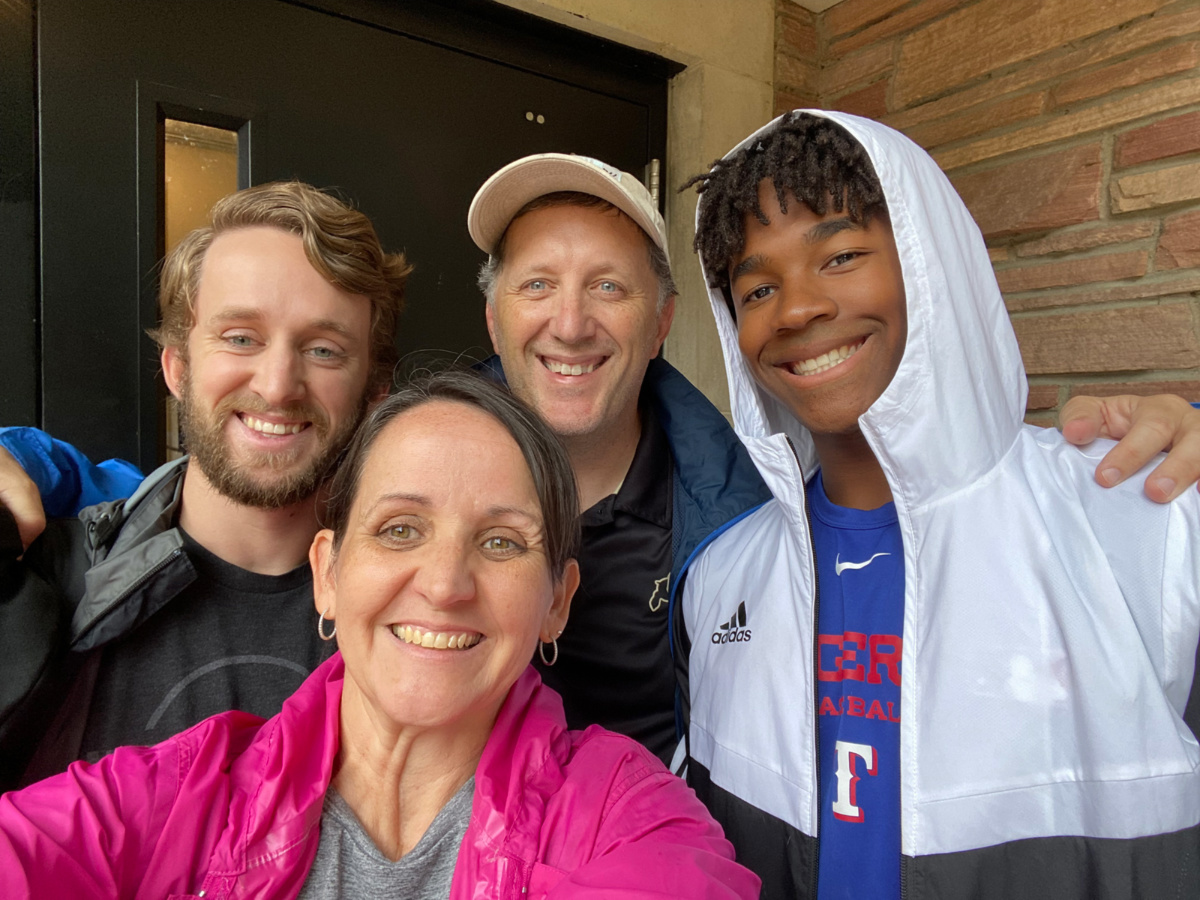
ADELLE M BANKS, of Religion News Service, reports on how Shelley and David Park recommend books, movies, videos, podcasts and people to follow on social media to “expand your echo chamber”…
United States
RNS
For Shelley Park, it was the 2019 killing of Atatiana Jefferson by a Texas police officer that transformed her from a casual observer of US racial history to teaching about it in hopes of fostering cross-racial understanding.
For David Park, it was the need to learn from Black friends how to have “the talk” with both of their children: their biological son, Samuel, and his younger adopted African American brother, Jeremiah, as they grew closer to the age when they could be subject to a traffic stop.

Shelley and David Park with their sons, Samuel, left,and his younger brother, Jeremiah, right. PICTURE: Courtesy Shelley Park
For four years, the white couple from the Dallas suburb of Carrollton has been leading free classes called Let’s Talk Race: A Beginner’s Guide to Conversations About Race, in which they aim to teach people – primarily white Christians – the Biblical, historical and societal aspects of race in America.
“I had been following all these people of colour on Instagram and really learning and reading books,” said Shelley, who grew up as a missionary kid in the Philippines, in an interview with Religion News Service. “Many of them said, ‘We’re just tired,’ and ‘White people, we need you to get your people.’ And it was like the Lord said very clearly, as I was processing Atatiana’s murder, that it was time to do something.”
“I had been following all these people of colour on Instagram and really learning and reading books. Many of them said, ‘We’re just tired,’ and ‘White people, we need you to get your people.’ And it was like the Lord said very clearly, as I was processing Atatiana’s murder, that it was time to do something.”
– Shelley Park
The Parks, who are non-denominational Protestants, developed the course, adapting it from a presentation by her father, a retired minister, and continue to offer five weekly hour-and-a-half online classes. Last year they created LTR Ministries Inc, a not-for-profit with a multiracial governing board, to give white people and churches a starting point on racial reconciliation.
“We’re not really helping you across that bridge or down that journey,” said Shelley, during a recent podcast episode of Jemar Tisby’s “Fighting Racism” series done in partnership with RNS. “We’re saying: Hey, you need to go take that journey. You need to go cross that bridge and we’re going to give you some tools to help you do that and do it well.”
They recommend books, movies, videos, podcasts and people to follow on social media to “expand your echo chamber”. Though they note they do not agree with every word written or spoken in their lists of resources, they say “it is good for us to learn to listen to voices who look at and see the world differently than we do.”
Their curriculum has addressed the “Curse of Ham” – a story in the Book of Genesis that some have used to support the idea that some races are subordinate to others – and food deserts that have left communities without nearby grocery stores. They deal with both individual racism, urging their students to leave the course ready to “sit and listen and to believe” their friends of colour, and systemic racism, such as redlining, a form of housing discrimination.
They kept the virtual classes small, with about 15 to 20 people from around the country who heard about them by word-of-mouth, said Shelley, 51, who studied the Civil Rights Movement as a college student.
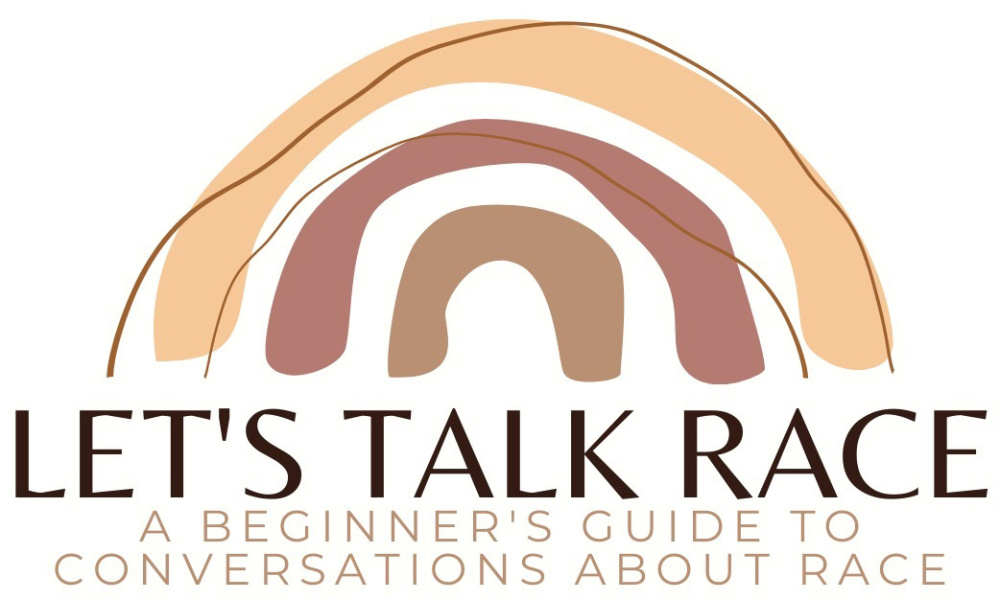
“Let’s Talk Race: A Beginner’s Guide to Conversations About Race” logo. GRAPHIC: Courtesy image
In 2020, amid COVID-19 shutdowns and protests sparked by the killing of George Floyd by a Minneapolis police officer, they reached more than 300 people through the course, offering as many as four classes a week. As controversies around critical race theory mounted, interest waned but they say registrations have increased more recently and they have five classes set for this fall, to be led by several different facilitators.
David, 52, who recently left a 27-year corporate career to become a seminary student at nearby Abilene Christian University Graduate School of Theology, said most class participants have a positive “aha moment” but a few have gotten angry and given up on the class after a session or two.
The Parks hope people leave the class feeling a responsibility to take action individually and with their churches, and not leave the work up to others, including the Black churches whose leaders have often publicly called for addressing racism.
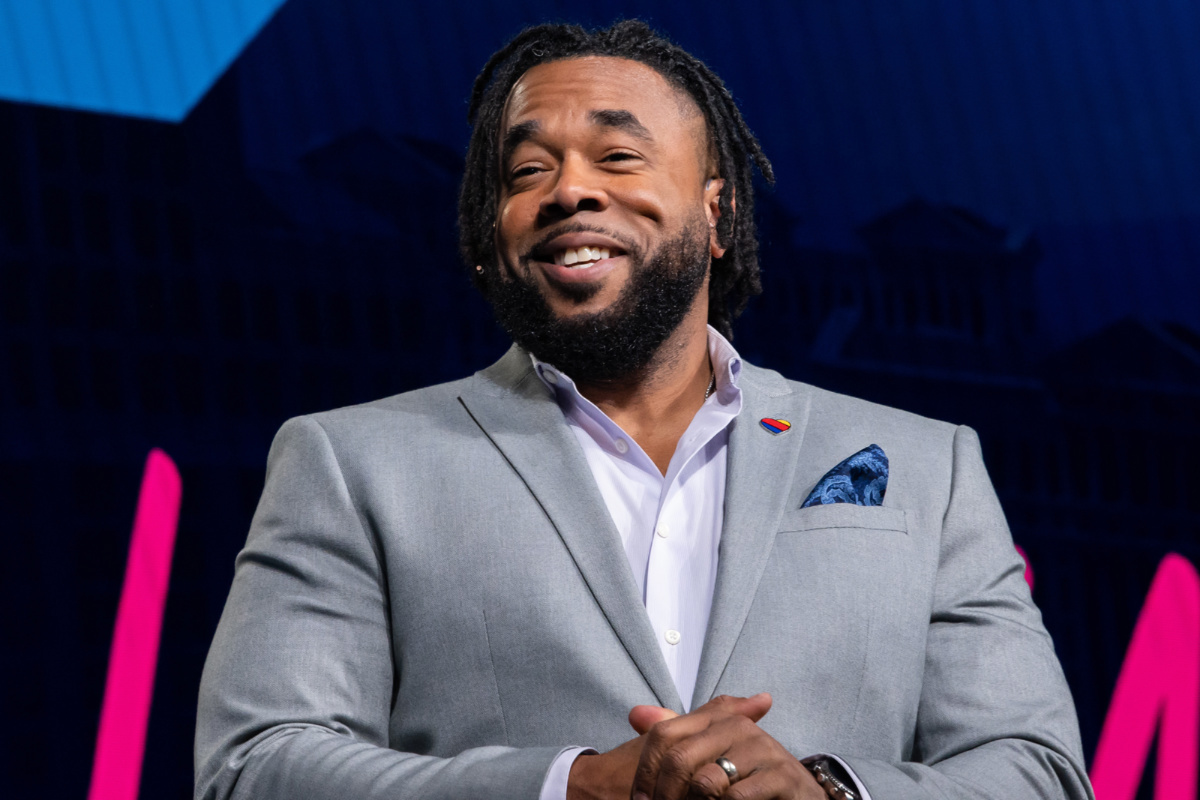
Markus Lloyd. PICTURE: Courtesy photo
The couple recommend participants move on to interracial groups where they can have discussions and take actions, such as Be the Bridge, a non-profit that aims to create “anti-racist bridge-builders,” and Threaded, an organisation that encourages collaborative community action by a diverse group of churches.
“My Black brothers and sisters, the church leaders that I know, they’re kind of going: ‘I’m waiting for the white people to come with the right attitude before I step into the ring,’” said Markus Lloyd, the Black founder of Threaded, which partners with LTR for initial “reorienting” of mostly white groups before holding cross-cultural discussions. “So I always have to tell them I’m preparing white people to meet you so that we can actually do this right this time.”
Participants in the LTR training have told Shelley and David it’s helpful for them to start the process in a predominantly white setting, where they say they can get some questions answered without offending people of colour during their foray into greater racial awareness.
“One of the things my dad has said several times is: We’re the ones that created this problem, so we’re going to probably have to be the ones to solve it,” said Shelley, a part-time non-profit contractor who was mentored by Brenda Salter McNeil, a Black professor who guided her in a 2022-23 group of racial reconciliation emerging leaders.
Some former Let’s Talk Race students speak of a transformation that affects how they live, how they raise their children and how they consider their place in the church and the community.
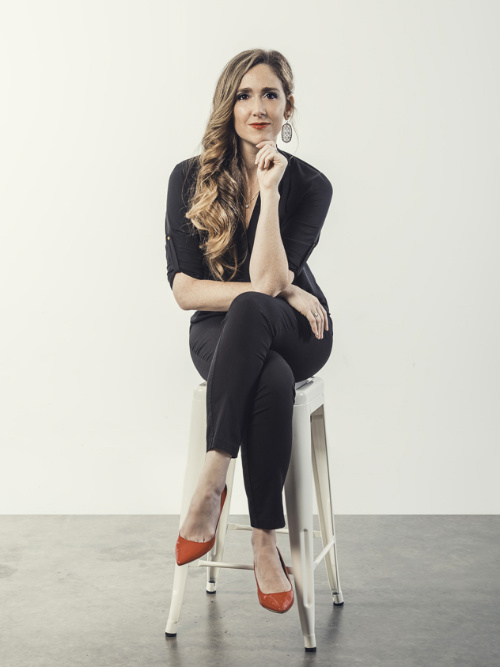
Robyn Morton. PICTURE: Courtesy photo
Robyn Morton, a white Dallas financial adviser, said she’s completed the class twice, once as an individual and another time with clients in her practice. She said the “life changing” experience has shifted the ways she is concerned about the next generation and the next crisis.
“Whiteness did not register to me as a culture,” said Morton, a regular churchgoer who learned about white privilege and how white supremacy extends beyond the Ku Klux Klan and skinheads.
“I didn’t have any idea of what white supremacy really was and how prevalent it was in my life, in my thought process, in my approach to life,” she said. “It’s been a huge shift in a lot of ways.”
Since taking the class, she’s observed Black History Month with her family, purchasing books about the Rev. Martin Luther King, Jr, Rosa Parks and Ruby Bridges for her children, now six and eight-years-old.
“Being able to talk to my kids about the reality of the situation really, really matters to me because there are so many things going on in school systems now to try and shift the narrative on what things are talked about and how things are talked about,” she said.
We rely on our readers to fund Sight's work - become a financial supporter today!
For more information, head to our Subscriber's page.
Steve Frissell, a pastor of Bent Tree Bible Fellowship in Carrollton, Texas, a predominantly white evangelical Protestant church where the Parks are members, said he learned from LTR classes about parts of the history of the church and the nation he had not heard before.
The extent of police killings of people of colour in recent times was jarring to him when his class heard a list of the victims.
“I didn’t even know half of the names,” he said. “I just realised how ignorant I am and how much I don’t know.”
After learning in the class about different people’s experiences with police, he understood better the reaction from a Black visitor at his church who expressed initial surprise that the church with a couple of thousand attendees each weekend had uniformed officers in its worship services.
“If I hadn’t gone through Let’s Talk Race and hadn’t been in a journey and learning and growing, I would be confused as to why would he be nervous about police,” said Frissell, who acknowledged that while he had long felt police are equated with safety, “that’s not everybody’s experience.”
Frissell said he also hopes to change the networks through which he hires for his church, which traditionally has had few people of colour on its staff.
“I notice how I am a part of systemic racism,” he said. “Even in hiring practices, you often hire within the circles of who you know.”
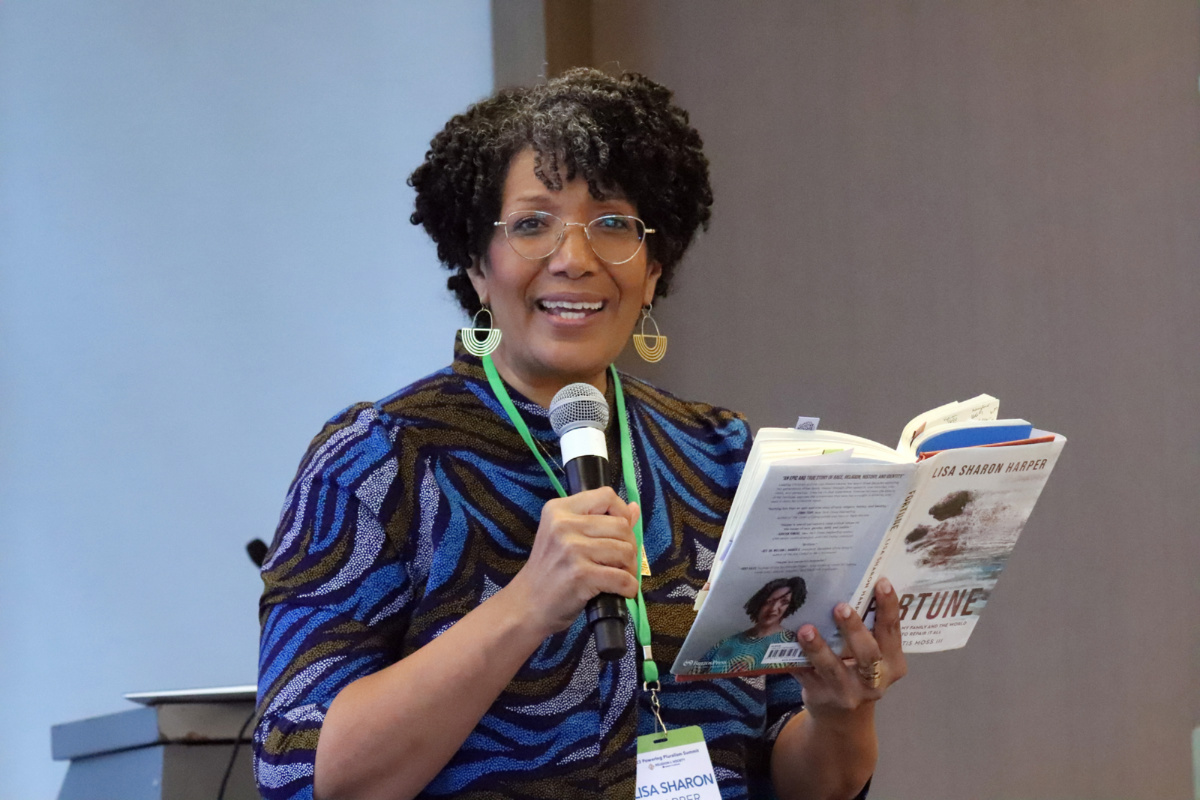
Lisa Sharon Harper speaks at the Powering Pluralism Summit, hosted by the Aspen Institute’s Religion & Society Program, in Washington, DC, on 22nd June, 2023. PICTURE: RNS/Adelle M Banks
Lisa Sharon Harper, president of Freedom Road, a consulting group that works with people and organizations to build “common understanding that leads to common action,” said white-led efforts like Let’s Talk Race prompt both her congratulation and some caution.
“It is good that people of European descent have been moved to the point of action,” she said of groups like LTR Ministries. “It needs to happen with humility, deference, accountability and without profit.” She also stressed the need to share power.
White people’s awareness of race and advocacy for the concerns of people of colour has existed in various forms over the centuries, from the work of Quakers in the abolitionist movement to “Introduction to Anti-Racism for White People” classes taught in recent years at Washington’s All Souls Church Unitarian to Harper’s “Ally Tour” that engages mostly white women in listening sessions to hear what issues women of colour are focused on during an election season.
The Parks do not describe themselves as “white allies”, though others have.
Instead, David said, they prefer to just call themselves “Christians” or “Jeremiah’s mom and dad”.






